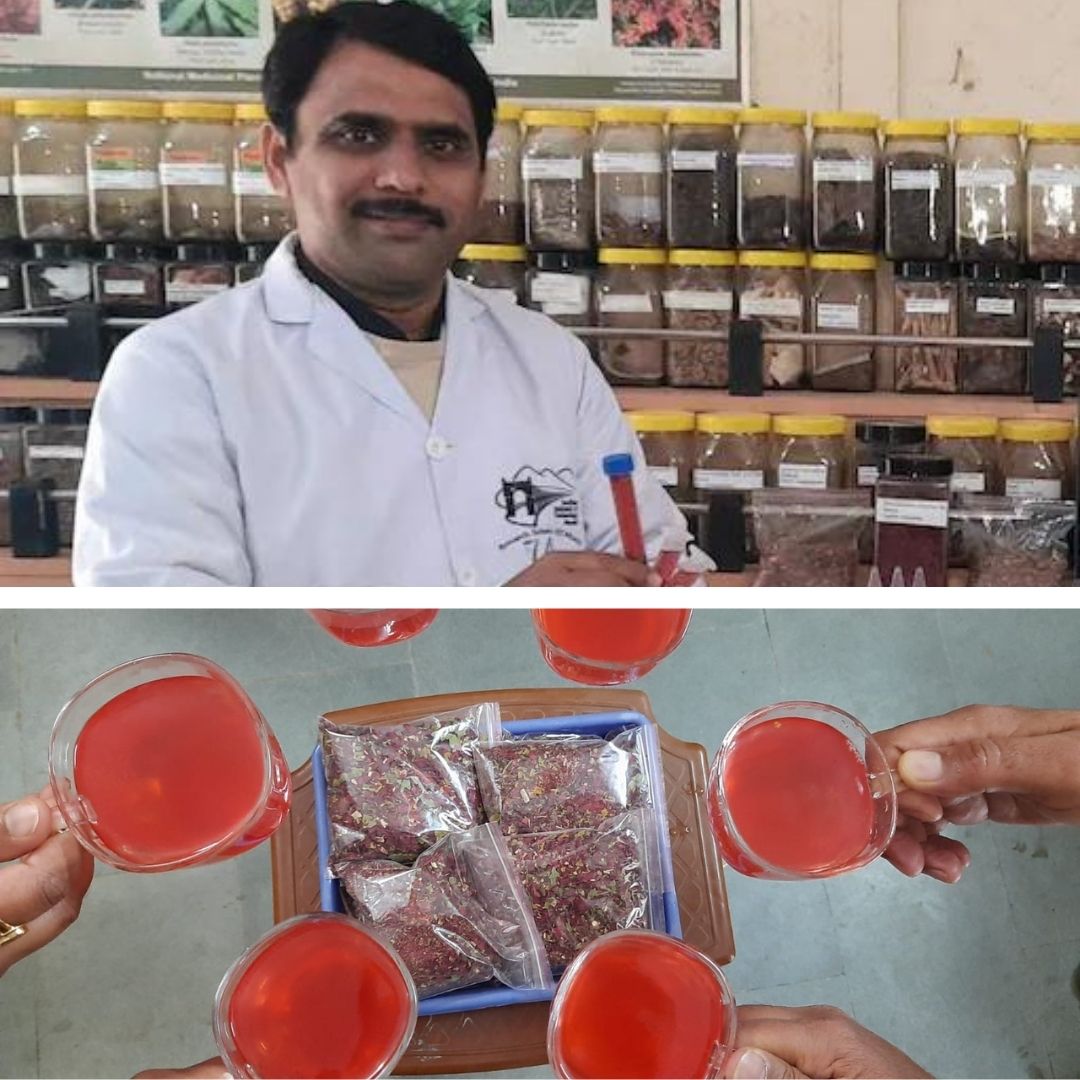
Image Credits: News18
Phytochemicals In Himalayan Plant Can Potentially Cure COVID-19, Claims IIT Mandi Researchers
Writer: Tashafi Nazir
For most people, journalism sounds hectic and chaotic. For her, it's a passion she has been chasing for years. With an extensive media background, Tashafi believes in putting efforts on presenting a simple incident in the most interesting way.
Himachal Pradesh, 18 Jan 2022 9:15 AM GMT
Editor : Shiva Chaudhary |
A post-graduate in Journalism and Mass Communication with relevant skills, specialising in content editing & writing. I believe in the precise dissemination of information based on facts to the public.
Creatives : Tashafi Nazir
For most people, journalism sounds hectic and chaotic. For her, it's a passion she has been chasing for years. With an extensive media background, Tashafi believes in putting efforts on presenting a simple incident in the most interesting way.
Locals consume the petals of the Himalayan Buransh plant, scientifically called Rhododendron arboreum, in different forms for varied health benefits. The IIT Mandi and ICGEB scientists set out to test the extracts containing various phytochemicals, focusing on antiviral activity.
Researchers from the Indian Institute of Technology Mandi and The International Centre for Genetic Engineering and Biotechnology (ICGEB), New Delhi, have claimed to identify Phytochemicals in the petals of a Himalayan plant that could potentially treat COVID-19.
Phytochemicals are chemical compounds produced by plants, mainly to help them resist fungi, bacteria and plant virus infections, and also consumption by insects and other animals. They are non-nutritive chemical compounds that may have health effects.
The research team's findings have been recently published in the journal titled, 'Biomolecular Structure and Dynamics'. The research was led by Dr Shyam Kumar Masakapalli, Associate Professor, BioX Centre, School of Basic Science, IIT Mandi and Dr Ranjan Nanda, Translational Health Group and Dr Sujatha Sunil, Vector-Borne Disease Group, International Centre for Genetic Engineering and Biotechnology, New Delhi. Dr Maneesh Lingwan, Shagun Shagun, Falak Pahwa, Ankit Kumar, Dileep Kumar Verma, Yogesh Pant, Lingarao V. K. Kamatam and Bandna Kumari co-authored the paper.
Non-Vaccine Alternatives For COVID-19
The researchers are now trying to understand the nature of the COVID-19 virus and discovering new methods to prevent its infection. While vaccination is one way to protect the body with the fighting power against it, there is a search for non-vaccine alternatives worldwide to prevent viral invasion in humans. These medicines use chemicals that either bind to the receptors in a person's body cells and prevent the virus from entering or act on the virus itself and prevent its replication inside the human body, News 18 reported.
Locals consume the petals of the Himalayan Buransh plant, scientifically called Rhododendron arboreum, in different forms for varied health benefits. The IIT Mandi and ICGEB scientists set out to test the extracts containing various phytochemicals, focusing on antiviral activity. They extracted the phytochemicals from the Buransh petals and performed biochemical assays and computational simulation studies to understand their antiviral properties.
The research found that hot water extracts from these petals were abundant in quinic acid and its derivatives. As per the molecular dynamics studies, phytochemicals have two types of effects against the virus. They attach to the main protease-an enzyme that plays an essential role in viral replication, and to the Human Angiotensin-Converting Enzyme-2 (ACE2) that bridges viral entry into the host cells, according to Business World.
Through experimental assays, the researchers also showed that non-toxic doses of the petal extracts could inhibit COVID-19 infection in Vero E6 cells (cells derived from an African green monkey's kidney, that is generally used to study infectivity of virus and bacteria), without any harmful effects on the cells themselves.
The findings support the acute need for further studies to find specific bioactive drug candidates from R. arboreum in vivo and clinical trials against COVID-19 infection. To understand the exact mechanism of inhibition of COVID-19 replication by specific phytochemicals from Buransh petals, the researchers also plan to carry out additional studies in future.
Also Read: UP Polls: Radhika Bai Becomes 1st Transgender Candidate to Contest From Agra Cantonment Seat
 All section
All section














